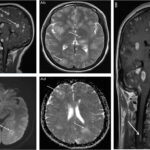Acquired Factor VIII Deficiency, also known as acquired hemophilia A, is a rare but potentially life-threatening autoimmune disorder. It is characterized by the development of autoantibodies that inhibit Factor VIII, a critical clotting protein. This condition can lead to severe bleeding episodes and requires timely diagnosis and effective management to prevent complications.
Understanding Acquired Factor VIII Deficiency
Acquired Factor VIII Deficiency is distinct from congenital hemophilia A, which is inherited. In acquired cases, the immune system mistakenly produces antibodies against Factor VIII, disrupting the coagulation cascade necessary for normal blood clotting.
Causes and Risk Factors
While the exact cause is often unknown, several factors can trigger acquired Factor VIII Deficiency:
- Autoimmune Disorders: Conditions like lupus and rheumatoid arthritis increase susceptibility.
- Pregnancy: Postpartum women are at higher risk due to immune system changes.
- Malignancies: Certain cancers, such as lymphomas, are associated with the condition.
- Medications: Rarely, drugs like penicillin or interferons may trigger autoantibody production.
- Idiopathic Cases: In many instances, no specific cause is identified.
Symptoms of Acquired Factor VIII Deficiency
Common symptoms include:
- Uncontrolled Bleeding: Spontaneous or prolonged bleeding in soft tissues, muscles, or mucous membranes.
- Hematomas: Painful, swollen areas of blood accumulation under the skin or within muscles.
- Hematuria: Blood in urine, a frequent symptom in severe cases.
- Gastrointestinal Bleeding: May present as black stools or vomiting of blood.
Diagnostic Approach
Timely diagnosis of acquired Factor VIII Deficiency is critical to prevent severe complications.
Laboratory Testing
- Coagulation Tests:
- Prolonged activated partial thromboplastin time (aPTT) is often the first indication.
- Normal prothrombin time (PT) helps differentiate it from other clotting disorders.
- Factor VIII Activity Assay: Measures the functional activity of Factor VIII.
- Bethesda Assay: Confirms the presence and titer of Factor VIII inhibitors.
- Complete Blood Count (CBC): May show anemia due to blood loss.
Differential Diagnosis
Acquired Factor VIII Deficiency must be distinguished from:
- Congenital hemophilia A
- Von Willebrand disease
- Liver disease-related coagulopathies
Treatment and Management of Acquired Factor VIII Deficiency
Treatment focuses on two primary goals: controlling active bleeding and eliminating inhibitors.
Bleeding Management
- Bypassing Agents:
- Recombinant activated Factor VII (rFVIIa) or activated prothrombin complex concentrates (aPCC) are first-line therapies.
- Factor VIII Replacement:
- High doses of Factor VIII concentrate may overcome inhibitors in mild cases.
- Antifibrinolytics:
- Tranexamic acid or epsilon aminocaproic acid may be used as adjunct therapies.
Immunosuppressive Therapy
To eliminate autoantibodies, a combination of immunosuppressive agents is employed:
- Corticosteroids: Prednisone is often the first-line treatment.
- Cytotoxic Drugs: Cyclophosphamide may be added for refractory cases.
- Rituximab: A monoclonal antibody targeting B-cells is increasingly used in resistant cases.
Monitoring and Long-Term Care
Regular monitoring of Factor VIII levels and inhibitor titers is crucial. Patients should be educated on recognizing early symptoms of bleeding and the importance of follow-up care.
Prognosis and Complications
With early and aggressive treatment, many patients achieve remission. However, complications can occur, including:
- Severe Bleeding Episodes: Particularly in high-inhibitor cases.
- Thrombotic Events: Rare but possible with bypassing agents.
- Relapse: Recurrence of inhibitors, necessitating ongoing vigilance.
Acquired Factor VIII Deficiency is a rare but serious condition requiring prompt diagnosis and comprehensive treatment. Through a combination of bypassing agents, Factor VIII replacement, and immunosuppressive therapies, healthcare providers can manage this challenging disorder effectively, improving outcomes for patients.

